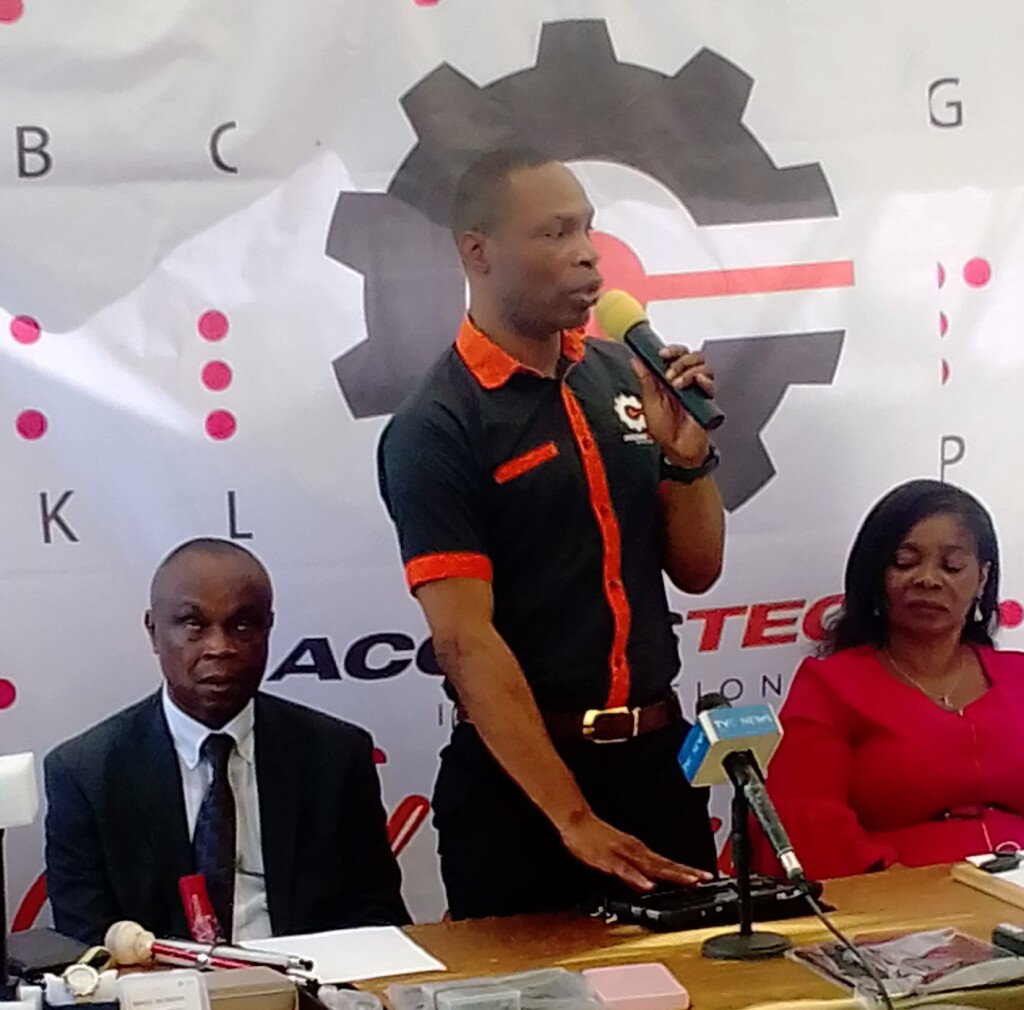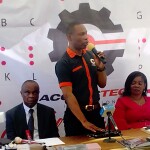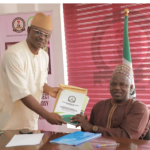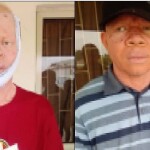Celebrating the 2024 World Braille Day, AccessTech Innovation has called on Nigeria’s politicians and policymakers to remove import duties on assistive technology (AT) products coming into Nigeria.
The founder of Nigeria’s first assistive technology research and resource centre Ope Akinola said this is necessary because the country doesn’t produce the modern devices that provide the blind access and independence.
“Customs duties make importation of these products difficult for those who can even afford them,” he said while delivering his keynote address on his digital braille during the commemoration at the centre’s Surulere office, Lagos, January 4.
His highlight of braille history touched the many milestones of the technology, starting from its inventor Louis Braille in the 1800s, and the cobbler awl (now stylus) that blinded him, through the series of improvement its coding system underwent. He also traced out its analogue and digital eras, with their distinct levels of inclusion and accessibility, in both the developed and the developing worlds, especially in Nigeria.
According to Akinola, the braille system is the only means the Nigerian government can enhance literacy for the blind in inclusive education. Screenreaders and other technologies that serve the blind mostly result in sensory overloads.
“And literacy is a right for every human,” he said, citing the Sustainable Development Goals, the African Union Charter on the Rights of PWDs, and other conventions.
Apart from the hardware importation challenge, the AT expert also identified copyright issues which he noted the Marrakesh Treaty Nigeria already ratified addresses in principles.
The Marrakesh Treaty (2013), which the World Intellectual Property Organisations (WIPO) administers, facilitates the production and international transfers of intellectual works for the blind without copyright infringement.
But the mindset of intellectual property owners still remains a problem in Nigeria.
“Authors should make their works accessible to blind readers,” he said.
He made a particular reference to academic institutions where blind students go through a lot of difficulty for coming unequipped with tactile skills AccessTech Innovation Centre now offers.
David Okon, the executive secretary and founder of Total Inclusion, a disability NGO, admitted the seriousness of the issues Akinola raised, especially the importation problem.
“We will take it up, and ensure the Discrimination Act is amended to accommodate that,” the former national president of the Nigeria Association of the Blind (NAB) said during his goodwill message.
“We kick-started the agitation for what they now call the Discrimination Act at a meeting in the multipurpose hall of Eko Hotel in 2000,” Okon added, highlighting his years of experience in advocacy. He also worked with the Nigerian Copyright Commission (NCC) on the Marrakesh Treaty when he was in the banking industry.
Okon’s current successor in NAB’s Lagos chapter, Lukman Salami, commented on the treaty, and pointed out the broad demand Akinola—and most advocates of accessibility—made on authors.
“When we ask authors to make their works available in accessible formats—what’s the accessible format?” The lawyer suggested advocates making such demand should be specific about the format.
As for government implementation of provisions in the laws and treaties addressing copyright issues for the blind, Salami believed AccessTech’s enterprise intervention might not be enough.
“You must add a little politics to it.”
The NCC D-G John Asein, however, reaffirmed the commitment of the commission to work with—‘not to guide’—AccessTech and the blind community in Nigeria, especially in the braille technology and its copyright aspect.
Asein also emphasized the need for the community to start documenting the inspiring lives of blind Nigerians like Akinola and others who are defying all odds, like Braille, to make the world a better place for all.
All the guests, including officials of Anglo-Nigerian Welfare Association for the Blind (ANWAB), NIGERWIVES, disability organisations, government bodies, students, and others commended the game-changing impact of AccessTech on the independence the blind now enjoy in Nigeria.
Agbede Balikis, a student of education management at UNILAG, told ER how frustration and inertia set in when she lost her sight in 2011, and the resulting poor performance in her first year at school.
She came to the centre for an eight-week programme where she learnt the basics of computer, excel, Python, and braille—and the change all that has brought into her studies.
AccessTech, a start-up supported by Microsoft and other partners, is an inclusive enterprise that boasts of blind resource persons providing training and assistive products, software and hardware, for the blind.
Its CEO Akinola is a disability scholar and policy expert who once served as chairman of NAB’s Lagos chapter. He has worked on disability projects and policy issues at both national and international levels.







